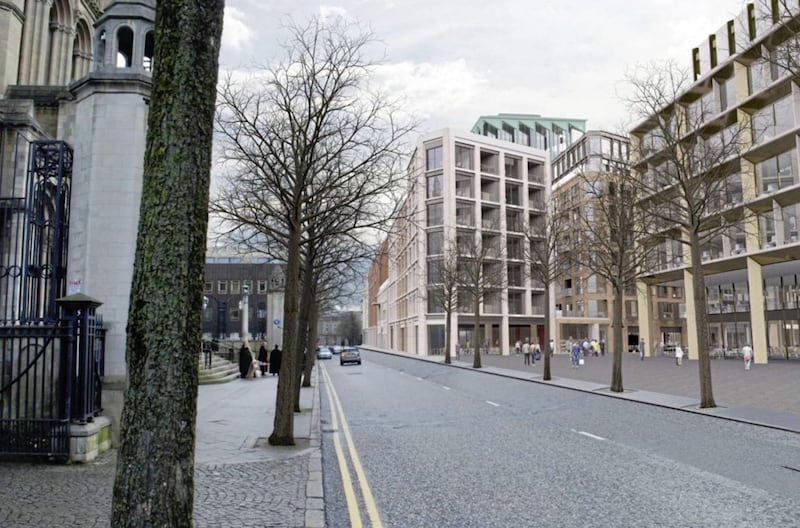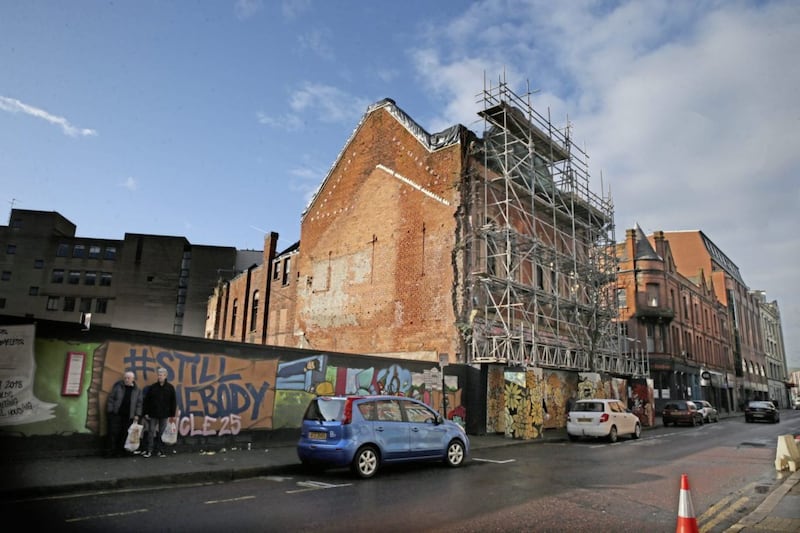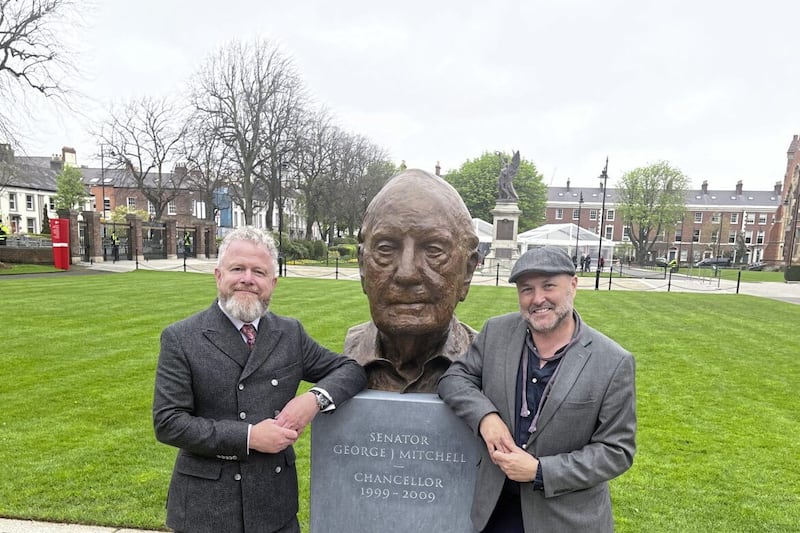CATHEDRAL Way, Royal Exchange, Tribeca Belfast are all names used for the proposed development of a 12-acre site In Belfast city centre that has taken nearly 20 years to get under way.
There have been at least four different owners in that time, including a bank and infamous US fund Cerberus. Even when the latest (and in my view best) plans for the site were passed in January, it took another nine months for them to, well, pass again.
Our planning system was reformed in 2014 and planning powers handed back to councils. One of the quirks (some might say inefficiencies) of that reform is that if a statutory consultee objects to a major application then, after one of the Councils passes that application for permission, the application must go back to the Department for Infrastructure for a check. The Department’s planners assess it (even though the Council’s professional planning team has done the same) and they come back with a decision to pass or they ‘call it in’.
If the application is cleared by the Department at that point - and this where the legislation doesn’t make any sense at all - it comes back to the Council for the Planning Committee of that Council, which, don’t forget, had already passed it previously, to debate it and pass it again.
Some would say that those extra checks are part of a good democratic process. And I might support that if I thought there was anything different or sub-standard about the professional planning teams in the Councils compared to the department’s planners, but I don’t believe that is the case, since many of those officials are former colleagues in the old Planning Service.
I’d also be more inclined to support it if there was any genuinely new changes to debate when it comes back to Council, but it’s the same application which gets debated. Are we really going to get a better perspective or are we just adding inefficiency and bureaucracy into an already slow system? I think you know my answer to that question.

I am loathe to complicate this further, but it’s probably also worth saying that sometimes in Councils, decisions are made by the elected committee representatives which are contrary to the recommendation of their planning officers and in that scenario, having an extra layer of assessment of a major application is valuable. How that is done fairly and efficiently is a subject for another day though.
My question here relates to when a Council’s professional planning team has recommended an approval and the politicians have supported it with a democratic vote - should we really have to go through a debate again after the department has checked and cleared the application for approval?
In my view, and what I’ve come to learn about our planning system here, is that its inefficiencies are a major inhibitor to our economic competitiveness. Across these islands and further afield, this region has a bad reputation for delays and inefficiencies in its planning system. That stops investment or at the very least, makes it more cautious. And at times like these, we can ill-afford that.
And so it was with the Tribeca Belfast application, which I have been working on since new owners Castlebrooke Investments purchased the site nearly five years ago. I had also worked on all the previous applications going back to Ewart Plc’s original land assembly and the Cathedral Way application in the late 90s and early 2000s.
Castlebrooke’s application was passed for permission by Belfast City Council in January this year and because one of the statutory consultees, the Historic Environment Division, had objected, the application was taken in for a check by the department. Now, yes, we’ve had a pandemic and things have not been straightforward in government, but it took four months for the application to come back out of the department approached and then, because of the rules, it had to come back to a committee hearing again in Belfast City Council. So, nine months after the application was first passed at committee, it had to pass again. Which it did, after a lengthy debate.

I don’t think there is a value, nor is there the space here, to capture that debate. But in a development of this scale in the city centre, there is always going to be differing opinions. In my view, the professional planning team at Belfast City Council, led by Aidan Thatcher, did an excellent job at striking a balance between protecting and regenerating the heritage aspects of the area alongside the commercial elements which allow this scale of investment to take place.
Castlebrooke also voluntarily adopted the draft Local Development Plan aspiration of including twenty per cent social and affordable housing in the residential element of the scheme. A site beside the development has been purchased for half of that social housing as well as the upgrading and rehousing of an existing social housing block on Donegal Street. The other half of the affordable housing will go inside the development with all of that being subject to detailed planning permission and approvals by the NI Housing Executive. A blend of mixed tenured housing: privately-owned; privately rented; social and affordable (co-ownership) is a really important part of any city’s successful housing and social cohesion strategy.
One development can’t fix all of Belfast’s housing challenges, but the fact is that the draft policy was adopted and is now part of a legally binding agreement which will bring approximately 70 new social and affordable units to Belfast city centre as part of the Tribeca Belfast scheme. This marks real progress for housing in the city centre and Sinn Fein members showed leadership and supported that but strangely, the People Before Profit members for instance, did not.
Of course, there were plenty of other issues around scale, heritage and open-space and those debates will be ongoing given that this permission is an ‘outline’ one which means ‘detailed’ permissions will be required in the future.
Still, a £500m scheme which regenerates all of the listed buildings and protects and enhances much of the rest of the built fabric in the area, as well as creating new squares and streetscapes and hundreds of jobs, has now passed its most important hurdle.
I just hope the next phase doesn’t take as long as this phase has. Some serious streamlining of how we do planning here would certainly help in that regard.
Paul McErlean (paul@mcepublicrelations.com) is managing director and founder of MCE Public Relations. Castlebrooke Investments is among his clients.









